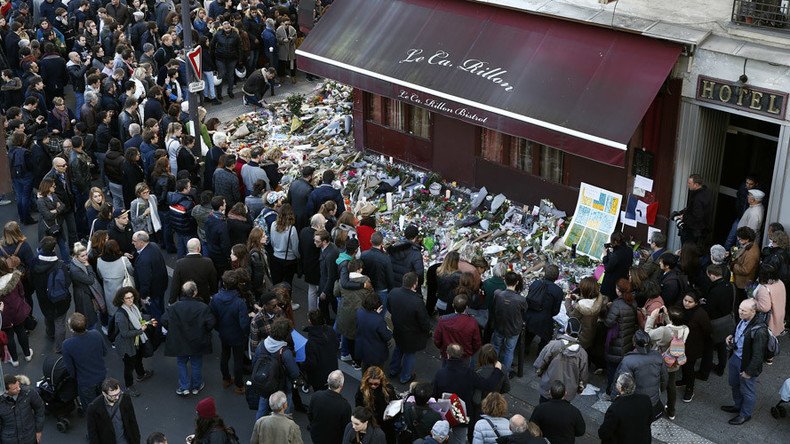Briton who survived Paris attacks ‘faces 3-month wait’ for mental health support

A traumatized Briton who survived the Paris attacks while shielding his girlfriend from gunfire says he feels “completely alone,” after being told he would have to wait up to three months to speak to a National Health Service (NHS) counselor.
Michael O’Connor, 30, used his body as a shield to protect his girlfriend Sara Badel Craeye, 28, when Islamic State (IS, formerly ISIS/ISIL) gunmen stormed the Bataclan Theatre in Paris on November 13.
The former chef was dubbed a hero and praised for his bravery after escaping the attacks, which left 130 people dead.
Although he survived the massacre, O’Connor was left mentally scarred by the experience.
Soon after returning to Britain, he approached the Talking Matters Cognitive Therapy service run by Northumberland, Tyne and Wear NHS, and was stunned to find he would have to wait up to 12 weeks for help.
‘Alone’
O’Connor said the NHS has made him feel “completely alone.”
“It is a real indictment of how bad mental health services are,” he told the Telegraph.
#BBCNews RT BBCPanorama: Michael O’Connor & Sara Badel describe being trapped lying near dead bodies in the #Paris… https://t.co/u6Tb9F44U4
— News Hunter (@TheBrkNews) November 17, 2015“The [British embassy in Paris] told me I would get the care I needed back at home. My GP has been brilliant and so have victim support, but it is disappointing I haven't been able to speak to a specialist. I feel completely alone,” he added.
The survivor said he still has nightmares and horrific flashbacks.
“Some days, I can be fine and on the outside I appear fine but inside, what happened is still haunting me.
“I can wake up some nights and I feel the fear I felt that night. Gunfights on TV bring it all back.”
‘Watchful waiting’
The Insight Healthcare and Northumberland, Tyne and Wear NHS Foundation Trust said it is following guidelines which recommend a “watchful waiting” period.
“The National Institute for Health and Care Excellence (NICE) guidance on Post Traumatic Stress Disorder (PTSD) recommends a period of ‘watchful waiting’, when carrying out an assessment,” its spokesperson told the Mirror.
“Watchful waiting involves monitoring an individual’s symptoms to ascertain whether they improve, remain the same or worsen.
“The watchful waiting period is recommended as PTSD symptoms can sometimes improve within this period, without treatment.
“Appropriate advice is given to our clients, and during the watchful waiting period, they can speak to their therapist, and they are also informed about other services that they can access.
“Following the watchful waiting period, we will further assess and review the gentleman’s symptoms, and offer treatment promptly.”











